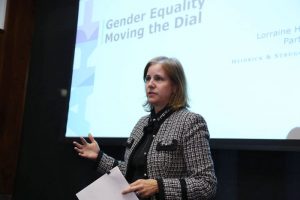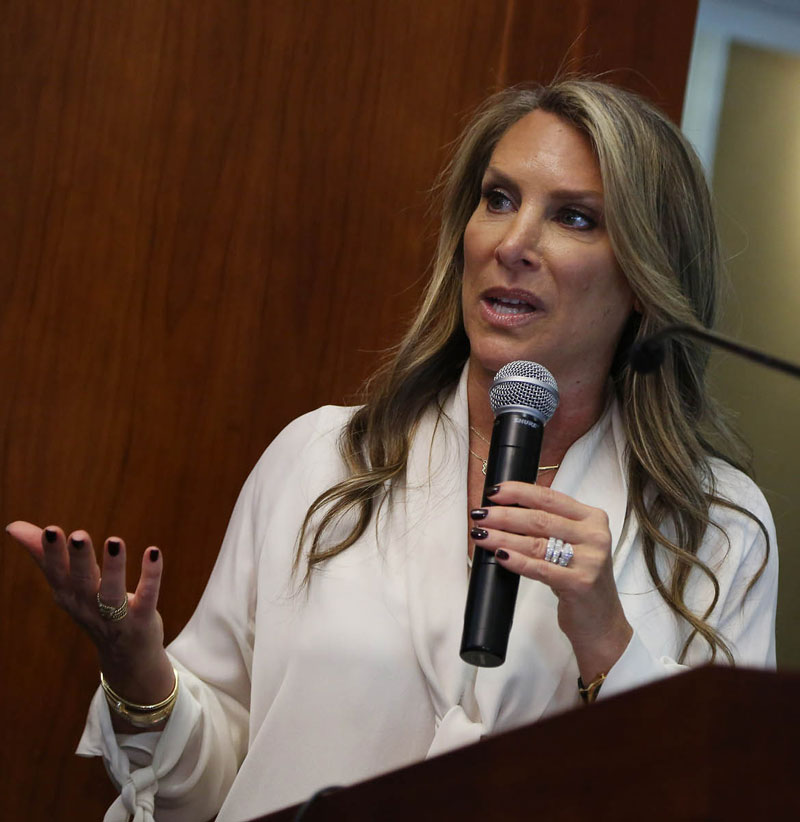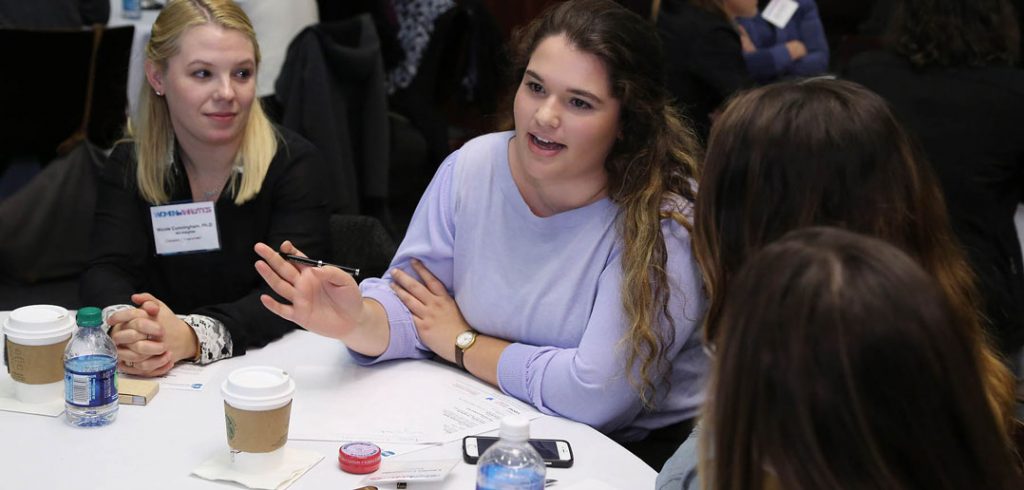Earlier this year, several states, including New York, passed legislation barring employers from asking about an applicant’s salary history. Many presenters of “Gender Equality: Your Career, Your Future,” an event organized by the Advertising Research Foundation (ARF)’s Women in Analytics, saw this as a positive first step in helping to curb practices that may contribute to pay gaps between men and women in advertising.
“The unconscious bias might be just as dangerous so a lot of corporations are going through training at all levels,” added Lorraine Hack, partner of the global executive search firm Heidrick & Struggles.
Hack, one of the speakers at the Nov. 28 event, which was hosted by the Gabelli School of Business, said recently many businesses have begun reviewing “blind” or anonymous resumes to boost diversity. “It’s hard to change the model so we’re trying to change pieces of it at a time.”

Still, there are a few steps that women can take to bring themselves closer to the C-suite. In her talk, which was focused on moving toward action, Hack suggested that women expand their network beyond their industry and function, seek out mentors and sponsors, and join a corporate or nonprofit board to gain experience in governance. She also encouraged attendees to remain supportive of each other throughout their journeys up the corporate ladder.
“It’s [about]pulling the next generation up behind us,” she said.
Some companies like Kantar, the data investment management division of WPP, have leveraged their talent pool through mentoring programs that pairs senior-level leaders with high potential women who are on track to become leaders in the future.
“We have metrics to make sure we’re making considerable progress in that area,” said Lynnette Cooke, Global CEO of Kantar Health, who participated in a panel discussion with her colleague Mary Ann Packo, CEO of Kantar Gold Rush.
A social and economic issue
Others argued that conversations about diversity and inclusion should transcend the boardroom.

“If we’re going to talk about gender equality in the workplace, it needs to start earlier than the workplace, and we have a role in that,” said Dawn Lerman, Ph.D., professor of marketing and associate dean of graduate studies at the Gabelli School.
Beyond recruitment, Shelley Zalis, CEO of the Female Quotient, believes companies can help to advance women by celebrating feminine and masculine archetypes— both of which contributes to successful leadership.
She said gender equality is a social and economic issue—not a “female issue.”
“One of the things that we have to acknowledge is that gender equality is all of our issues,” said Zalis. “Modern feminism must include men. We are all in this together.”
“Gender Equality: Your Career, Your Future” was sponsored by Kantar, Oracle, and Twitter.

